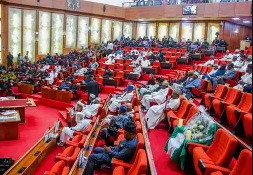
Paradigm Initiative (PIN) commends the decision by the High Court of Malawi, sitting as the Constitutional Court (ConCourt), which finds that section 200 of the Penal Code of Malawi, criminalising defamation, is unconstitutional. This follows a unanimous ruling by Justices Chifundo Kachale, Fiona Mwale, and Mzondi Mvula.
The decision by the three-judge bench concludes a case brought by Joshua Chisa Mbele against the Director of Public Prosecutions and the Attorney General, where the latter leveled charges against Mbele for alleged defamatory statements made regarding a public official in Malawi. In his defence, Mbele challenged the constitutionality of section 200 of the Penal Code of Malawi, which criminalised defamation, arguing that this provision infringed the right to freedom of expression as provided for under section 35 of the country’s Constitution, as well as running counter to Malawi’s obligations under regional and international human rights law.
In its commendable ruling, the ConCourt upheld the right to freedom of expression enshrined in the Malawian Constitution and described the punishment of imprisonment, as outlined in Section 200 of the Malawi Penal Code, as having a “chilling effect on public discourse and democratic participation.” In a ruling delivered on July 16th, 2025, the court said it did not find Section 200 of the Malawi Penal Code reasonable or necessary in light of the civil remedies available to deal with defamation.
Pushing for Legislative Reform: Malawi’s Judiciary Sets a Human Rights Precedent
PIN celebrates this win, having expressed concerns in the past over Malawi’s repressive laws through the Londa report on the state of digital rights and inclusion in Malawi and a joint advocacy statement calling for the repeal of laws infringing on freedom of expression.
PIN hopes that this decision will stir the legislature in Malawi to repeal laws that have a bearing on freedom of expression such as the Electronic Transactions and Cybersecurity Act 2016, which is increasingly being deployed as a weapon to criminalise freedom of expression and media freedom in Malawi with broad provisions such as section 87 that criminalises publication of offensive communications and an overly broad section 91 of the Act (prohibiting cyber spamming) which has been used to target individuals for insulting the President.
Acknowledging the judiciary’s vital role in promoting fundamental rights and freedoms and ensuring that repressive laws are outlawed, PIN applauds the progressive decision. The Malawi judiciary has demonstrated this leadership with a landmark case that can lead to further legislative reforms in Malawi and inspire other African judiciaries to adopt a human rights-based approach to adjudicating over such cases.
🔗 Read more stories, insights, and advocacy efforts on digital rights in Africa at LouisaOlaniyi.com.ng. Be part of the change. Stay informed. Speak up.


















This was beautiful Admin. Thank you for your reflections.
There is definately a lot to find out about this subject. I like all the points you made
This was beautiful Admin. Thank you for your reflections.
I appreciate you sharing this blog post. Thanks Again. Cool.
I appreciate you sharing this blog post. Thanks Again. Cool.
Your blog is a beacon of light in the often murky waters of online content. Your thoughtful analysis and insightful commentary never fail to leave a lasting impression. Keep up the amazing work!
This is my first time pay a quick visit at here and i am really happy to read everthing at one place
For the reason that the admin of this site is working, no uncertainty very quickly it will be renowned, due to its quality contents.
This is a great post. I discovered something entirely new and challenging on websites